Supply chain analytics is creating quite a buzz in the business world these days.
Companies are on the hunt for savvy professionals who can interpret data and enhance their supply chains.
If you’re looking to climb the career ladder in this exciting field, signing up for an online course might just be the ticket you need.
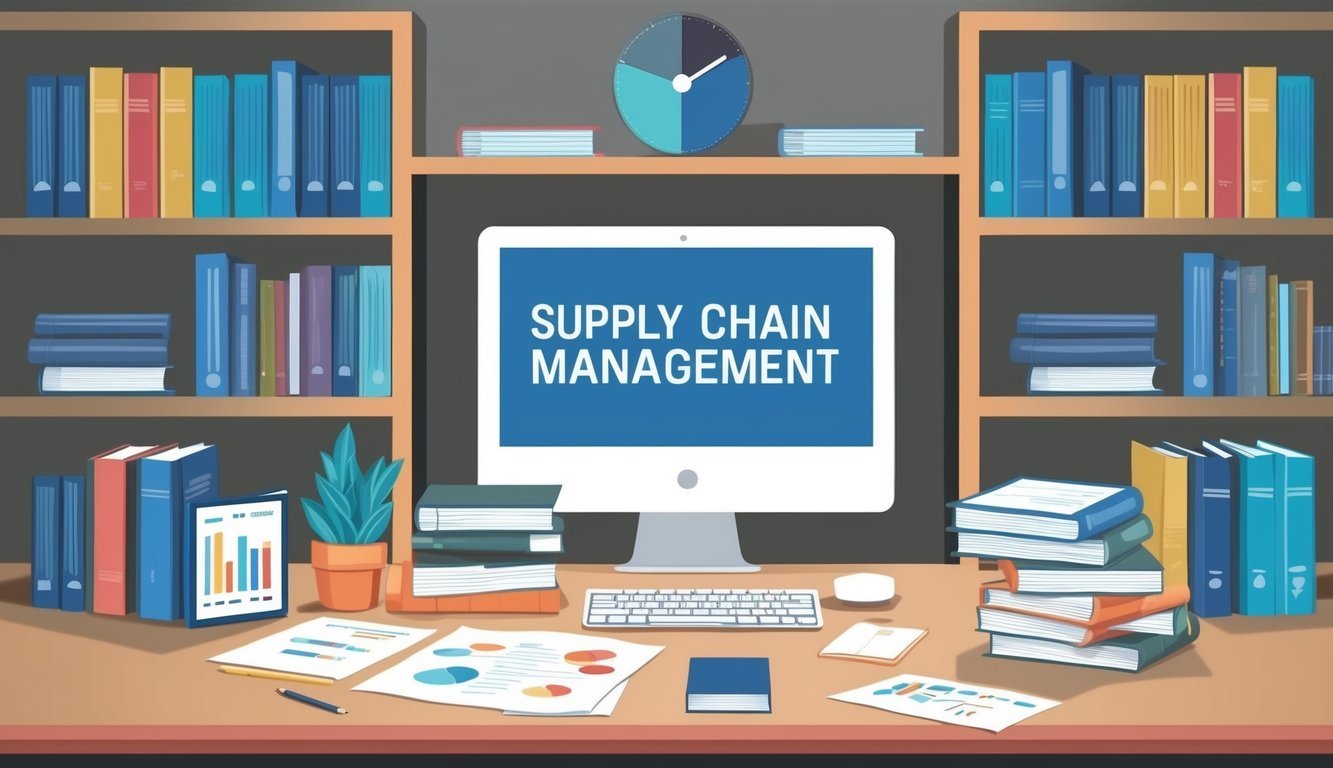
There’s a cornucopia of supply chain analytics courses out there to suit your timeline and wallet. These classes equip you with essential skills like using data to tackle problems and make informed decisions about managing a supply chain.
Whether you’re just starting or looking to sharpen your skills, there’s likely a course that’s perfect for you.
1) Coursera’s Supply Chain Analytics Specialization
If you’re eager to mix supply chain knowledge with data analytics, take a look at the Supply Chain Analytics Specialization on Coursera.
This program is tailored for anyone wanting to blend their supply chain smarts with analytical skills.
You’ll dive into a series of six courses that touch on various aspects of the supply chain.
From sourcing to sales, you’ll learn how to pinpoint and solve problems using data.
And the cherry on top? You’ll acquire real-world analytics skills to help streamline supply chains.
The first course kicks off with the fundamentals of supply chain analytics.
Here, you’ll see exactly how data can strike the right balance between costs and customer satisfaction.
As you progress, you’ll tackle more complex concepts.
When you’re done, you’ll have a solid understanding of how to wield data to enhance supply chain operations.
This specialization is perfect if you’re already in the field or looking to pivot your career.
It’s crafted to arm you with practical skills you can use immediately.
2) edX’s MITx MicroMasters in Supply Chain Management
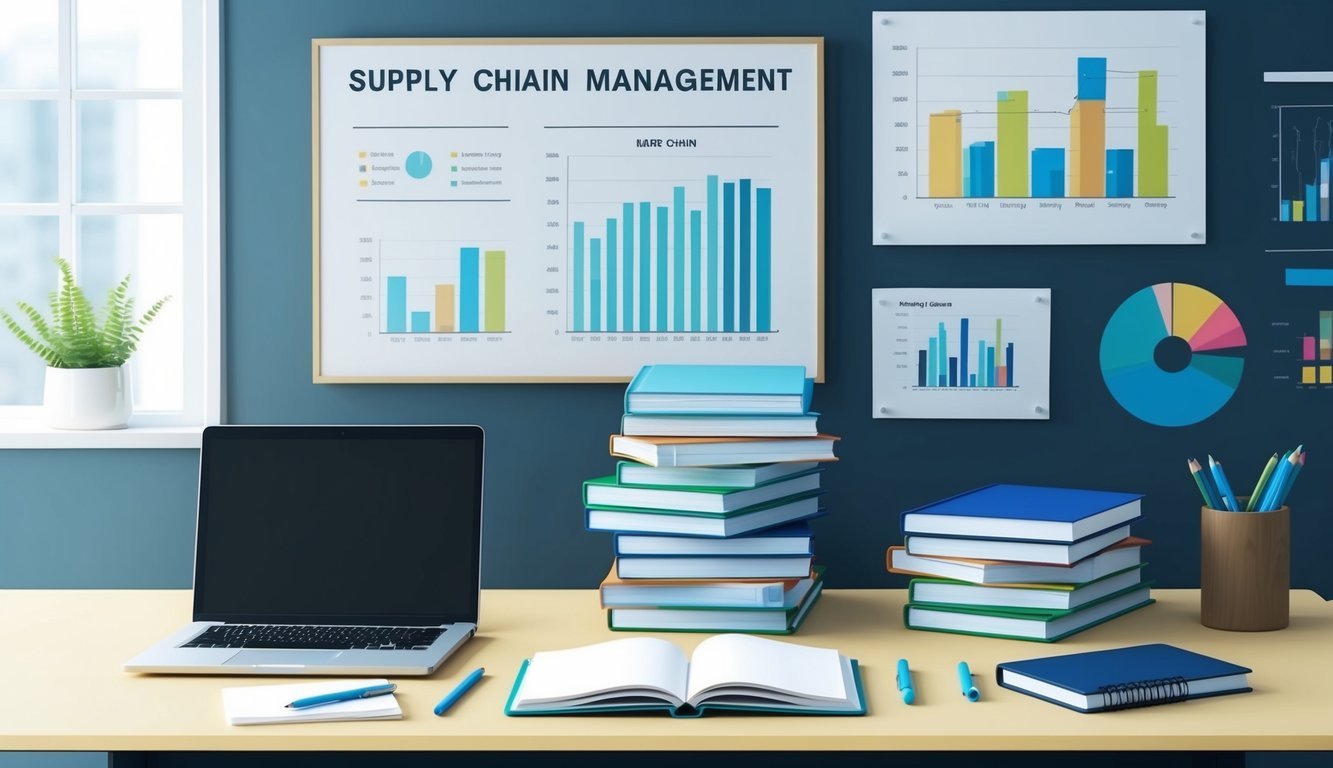
If you’re all about learning from the best, the MITx MicroMasters in Supply Chain Management is your golden ticket to top-tier supply chain education.
Offered by MIT—ranked #1 in Supply Chain Management globally—you’re in excellent hands.
This program provides a comprehensive view of supply chain management, split into five courses and a final exam.
Think of it as cramming a semester’s worth of MIT coursework into your schedule.
You’ll dive into crucial areas like supply chain analytics, design, and technology.
This will not only enhance your skills but also boost your value in your current role or open new doors.
Here’s a cool perk: if you complete the MicroMasters, you can apply to MIT’s full Master’s program in Supply Chain Management, and you’ll already have half the credits done! Talk about a head start!
The best part? You can learn at your own pace online, making it easier to juggle your studies around your busy life.
Plus, this route is way more budget-friendly than a traditional Master’s degree.
Ready to up your supply chain game? This MicroMasters could be exactly what you need.
3) Udemy’s Supply Chain Analytics and Technology Course
Want to strengthen your supply chain skills? Check out Udemy’s Supply Chain Analytics course.
This course is packed with info on how to use data for smart decision-making.
You’ll learn to use fancy tools to predict customer needs, helping you maintain just the right amount of stock.
Topics include forecasting and inventory management—you’ll see how they tie into the overall picture of supply chain planning.
If you’ve got a knack for numbers, you’ll love diving into these data-driven strategies.
Think of it like giving your supply chain career a boost of superhuman powers!
By the end, you’ll know how to apply analytics in day-to-day operations and long-term planning.
With the pace of today’s world, being comfortable with numbers is crucial.
This course lays down those skills in a practical, accessible way.
4) KPMG’s Data Science for Supply Chain
Want to harness the power of data science for your supply chain career? Check out KPMG’s Data Science for Supply Chain course.
This program teaches you how to utilize data and analytics to strengthen your supply chain.
You’ll explore real-time visibility and end-to-end traceability—powerful tools that help you identify and solve issues before they escalate.
Plus, it highlights innovative order fulfillment strategies and ways to foster quicker innovation.
KPMG’s experts will guide you in using data to make better decisions and keep your supply chain running seamlessly.
You’ll discover how analytics can help you make smarter choices that save both time and money.
By the end of the course, you’ll be equipped with new skills to tackle standard supply chain challenges.
From demand forecasting to risk management, you’ll walk away with practical knowledge that will make your work more manageable and effective.
5) LinkedIn Learning’s Supply Chain Foundations
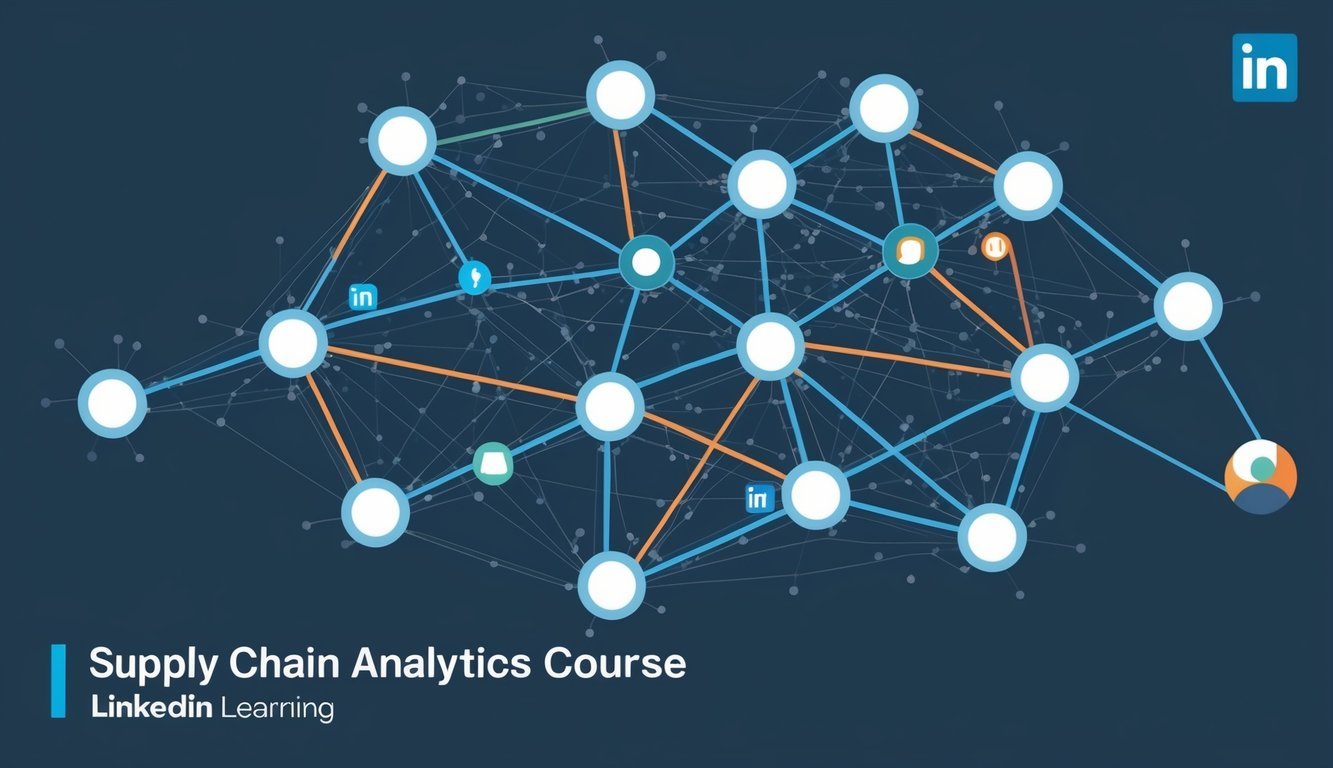
Looking to build a solid foundation in supply chain basics? Check out Supply Chain Foundations on LinkedIn Learning.
This course breaks down the key components of supply chains and how they all work together.
You’ll dive into inventory management, logistics, and procurement, learning to grasp complex ideas in an easy-to-digest format.
One great feature of LinkedIn Learning? You can download courses to watch on your phone without an internet connection.
Just grab the app, and you’re good to go!
If you’re data-driven, consider checking out their course called Supply Chain Foundations: Analytics.
It’ll teach you how to leverage data to enhance supply chain operations.
These courses can help you become a supply chain analytics pro.
You’ll pick up tools to boost efficiency and speed in supply chain processes.
6) Skillshare’s Supply Chain Analytics 101
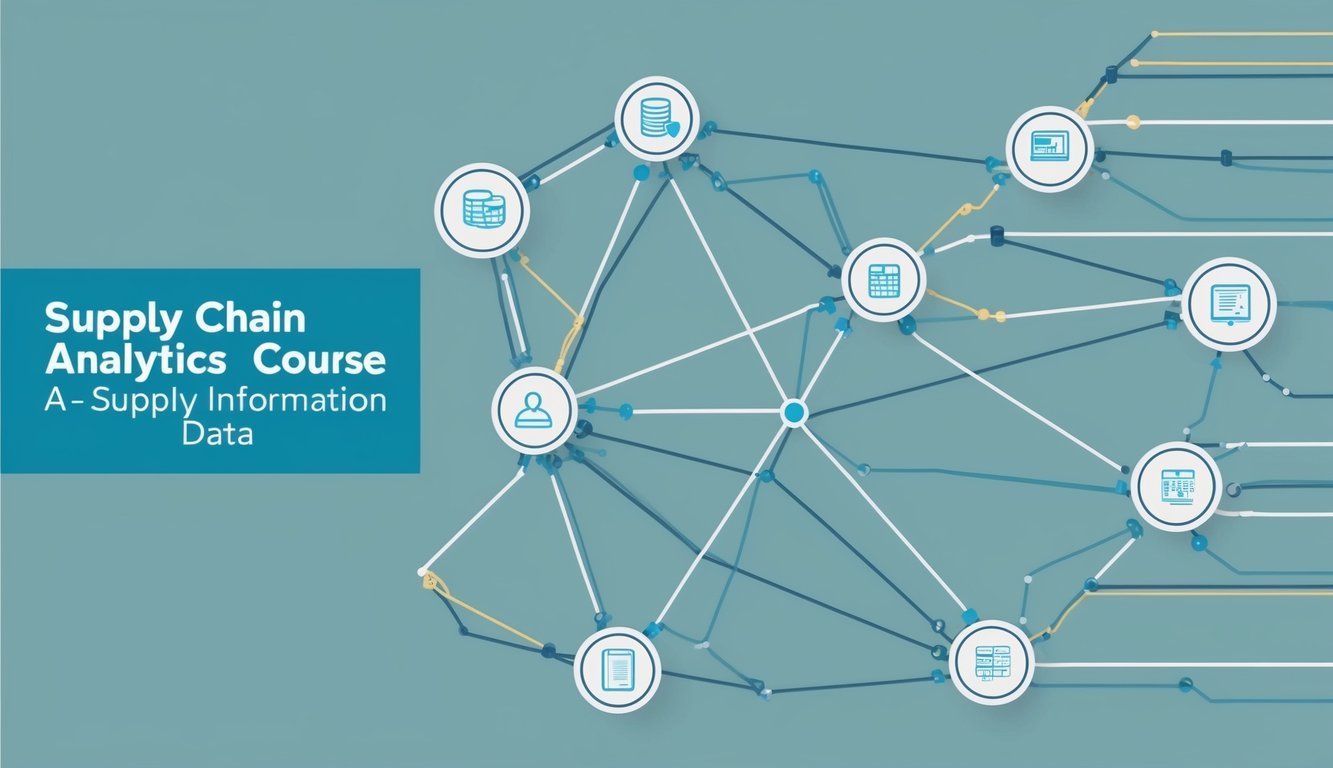
Just starting out in supply chain analytics? Skillshare’s Supply Chain Analytics 101 might be just the right match for you.
This course offers a fantastic introduction to the essentials.
You’ll find out how data can boost supply chain decisions, covering critical concepts and tools in the industry.
Plus, you’ll get hands-on practice with real-world scenarios along the way.
This course is designed for beginners, so no prior experience is necessary.
You can learn at your own pace, which is perfect for those juggling a busy schedule.
By the end, you’ll see how analytics can enhance supply chain efficiency.
You’ll be all set to apply these newfound skills in your job or further studies—it’s the perfect starting point for anyone interested in this ever-growing field.
7) Khan Academy’s Introduction to Supply Chain Analytics
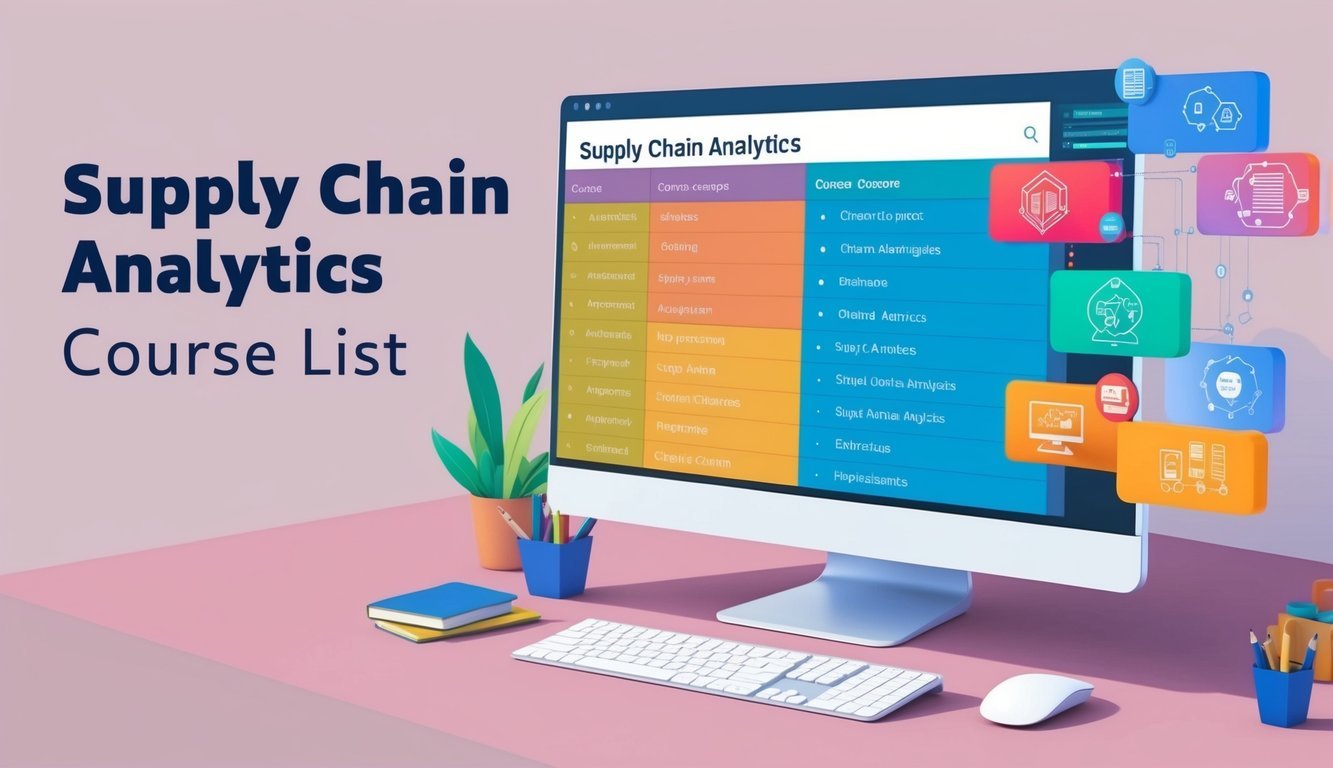
Want to take a peek into supply chain analytics without spending a dime? Khan Academy has you covered! Their Introduction to Supply Chain Analytics course is a fantastic starting point for newbies.
You’ll explore the basics of supply and demand, which are foundational to understanding supply chain analytics.
The beautiful thing about Khan Academy is how they break down complex concepts into bite-sized videos that are super engaging.
You can pause, rewind, and replay lessons as many times as you need, which makes it ideal for anyone balancing work or other responsibilities.
The course also includes practice exercises to help reinforce what you learn, giving you immediate feedback to highlight areas for improvement.
While it’s not as expansive as some paid options, it’s an excellent way to dip your toes in.
You’ll gain a solid foundation that can guide your choice for further studies down the road.
Benefits of Supply Chain Analytics
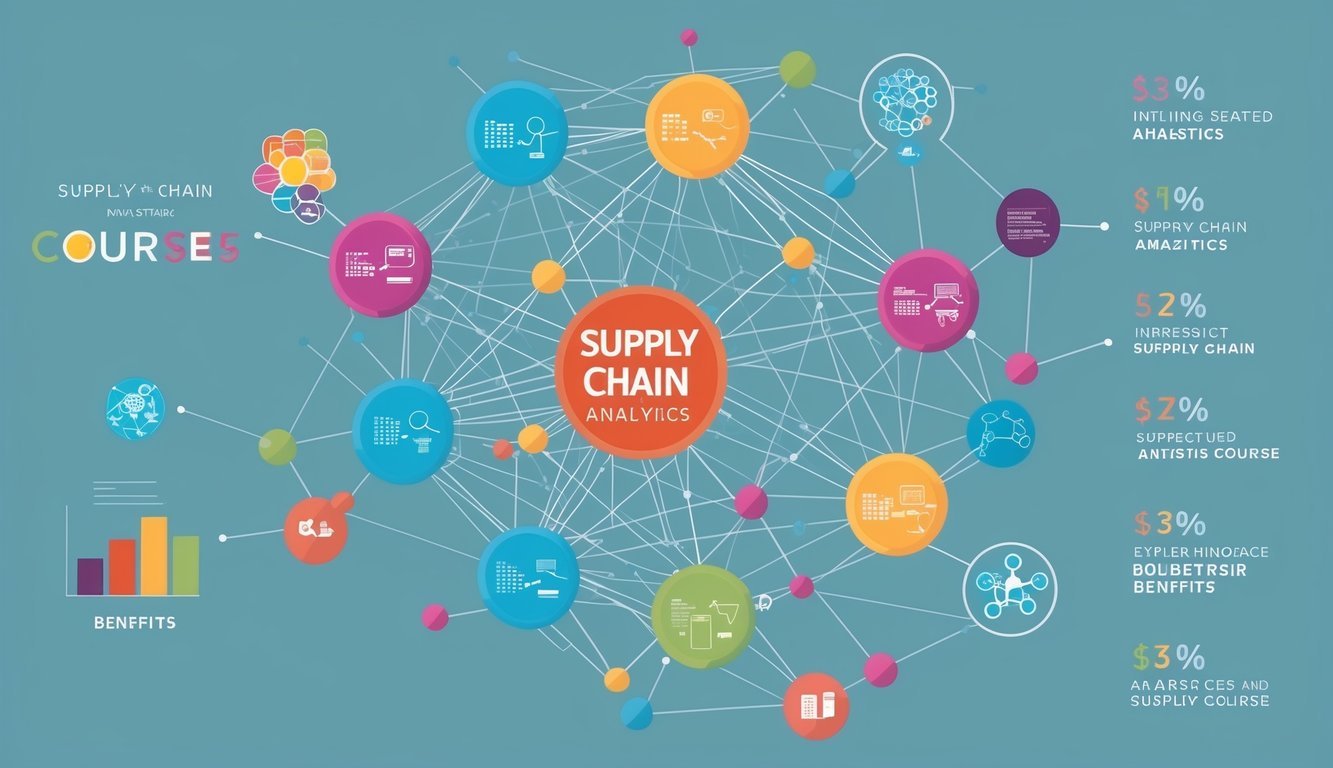
Supply chain analytics can dramatically boost your business operations.
It helps you work smarter and plan more effectively.
Let’s take a closer look at a couple of key areas where it really shines.
Enhancing Operational Efficiency
Using supply chain analytics can transform your daily operations.
It helps you identify where slowdowns are occurring or where costs are creeping higher.
With this intel, you can nip problems in the bud.
You’ll gain better tracking of products from start to finish, which means less waste and fewer delays. Supply chain analytics courses teach you to make smart decisions based on data, cutting costs and speeding up delivery times.
Analytics also helps you choose the best suppliers, allowing you to identify which ones are reliable and cost-effective.
This leads to stronger partnerships and happier customers.
Improving Demand Forecasting
Predicting what customers want? It can feel like trying to hit a moving target.
Supply chain analytics helps you eliminate the guesswork by leveraging past sales data and trends to accurately forecast demand.
If you can forecast better, you’ll stock just the right quantity of products—no more empty shelves or overflowing warehouses.
That means saving money while keeping customers satisfied.
With analytics tools, you can uncover patterns that you might overlook otherwise.
They can even indicate when demand may rise or fall, helping you stay prepared for busy seasons or slow days.
You’ll also become better at launching new products.
Analytics can inform you on the optimal timing and location for these introductions, ensuring the highest chances of success.
Key Concepts in Supply Chain Analytics
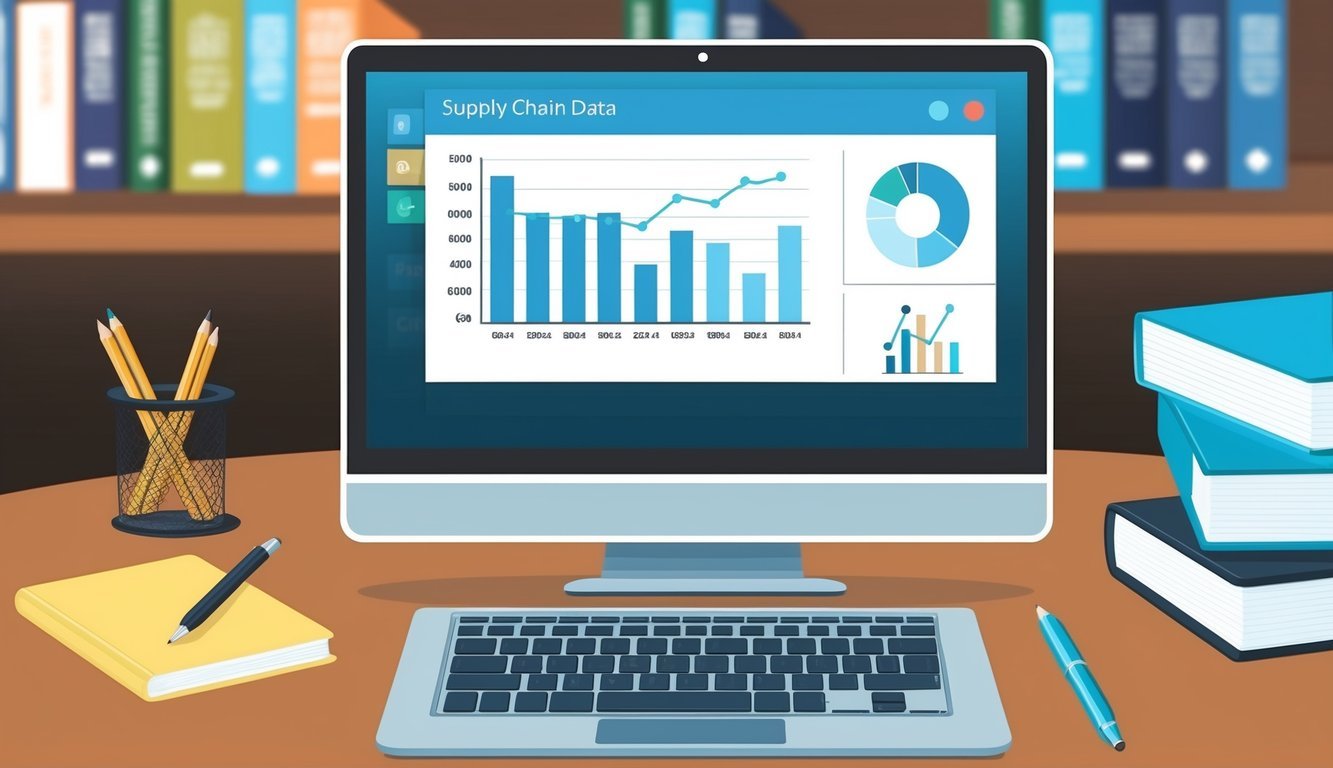
Supply chain analytics uses data to enhance how businesses manage their supply chains, allowing them to make smarter decisions and run more efficiently.
Big Data Integration
Big data is a game changer in supply chains.
You’ll need the know-how to wrangle large volumes of data from various sources—think suppliers, warehouses, and stores.
You’ll become proficient at employing specialized tools to organize this data, providing a comprehensive view of your entire supply chain.
Supply chain analytics courses will teach you to identify trends within this data, using it to enhance the working of your supply chain.
Predictive Analytics
Predictive analytics? It’s like having a crystal ball for your supply chain.
You rely on historical data to make educated guesses about what’s coming next.
This proactive approach allows you to avoid potential issues before they arise, ensuring you order the correct amounts at just the right times.
You’ll learn to use mathematics and computer programs to help make these predictions, potentially saving your company a whole lot of money while keeping clients happy.
Courses on predictive analytics will show you how to incorporate these tools into your daily routine, letting you practice making informed decisions based on actual data.
Frequently Asked Questions
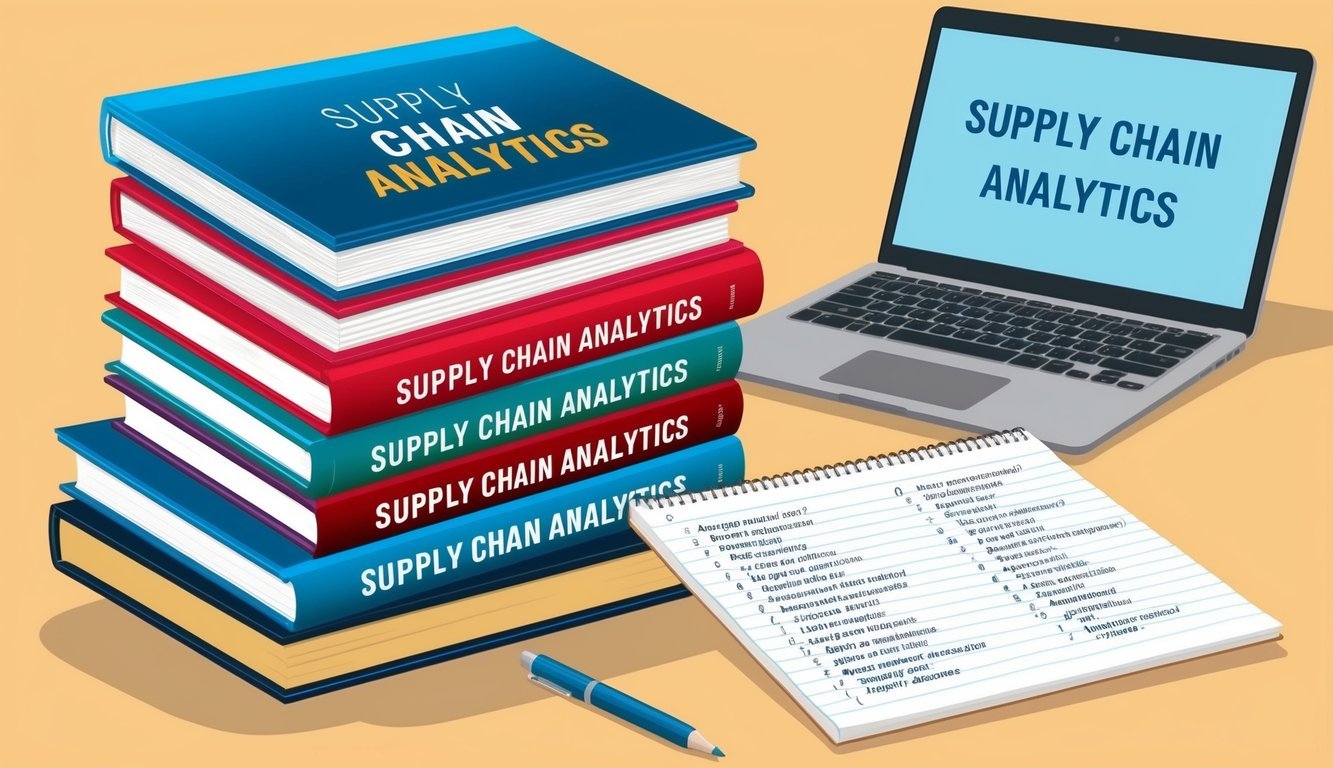
Supply chain analytics courses cover pivotal skills and topics.
Here are answers to some common queries about these programs.
What are some top-rated online courses for supply chain analytics?
If you’re looking for a popular option, Coursera’s Supply Chain Analytics Specialization is a great choice.
It touches on essential concepts and tools.
Another highly praised course is MIT’s MicroMasters in Supply Chain Management on edX, which delivers in-depth knowledge from industry leaders.
Can I find any expert-level supply chain analytics courses for free?
Finding free expert-level courses can be tricky.
However, many Coursera classes offer a free audit option, giving you access to course materials without a certificate.
Some platforms even provide free trials.
What topics are crucial in a supply chain analytics course syllabus?
Quality courses delve into data analysis, forecasting, and optimization while also covering inventory management and logistics.
For example, Udemy’s Supply Chain Analytics and Technology course incorporates these vital areas.
How can someone transition into a career in supply chain analytics?
Start by getting a grasp of the basics.
Courses like LinkedIn Learning’s Supply Chain Foundations are excellent launching points.
Then, progress to more advanced analytics topics and make practical skills with real data a priority.
Are there any certifications for supply chain analytics that are widely recognized?
A well-known option is the Certified Supply Chain Professional (CSCP).
Another respected title is the Certified Analytics Professional (CAP).
These certifications signal to employers that you possess solid skills in the field.
What are the typical analytic methods covered in a supply chain management course?
Courses frequently teach statistical analysis and predictive modeling, along with data visualization techniques.
For instance, KPMG’s Data Science for Supply Chain program includes these methods and more.

